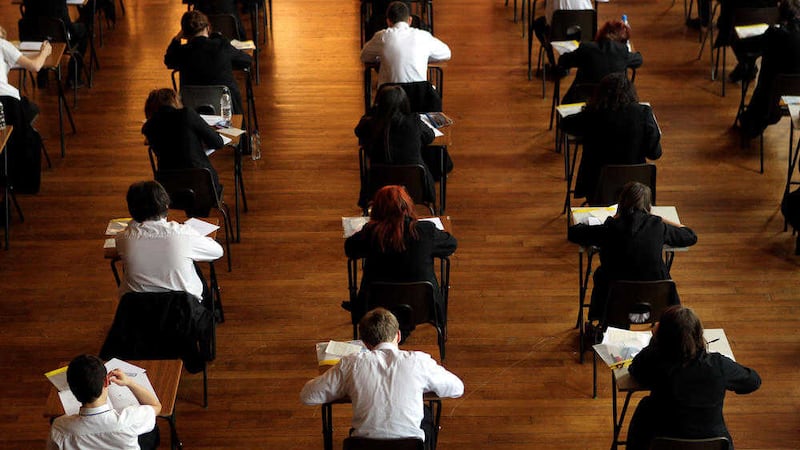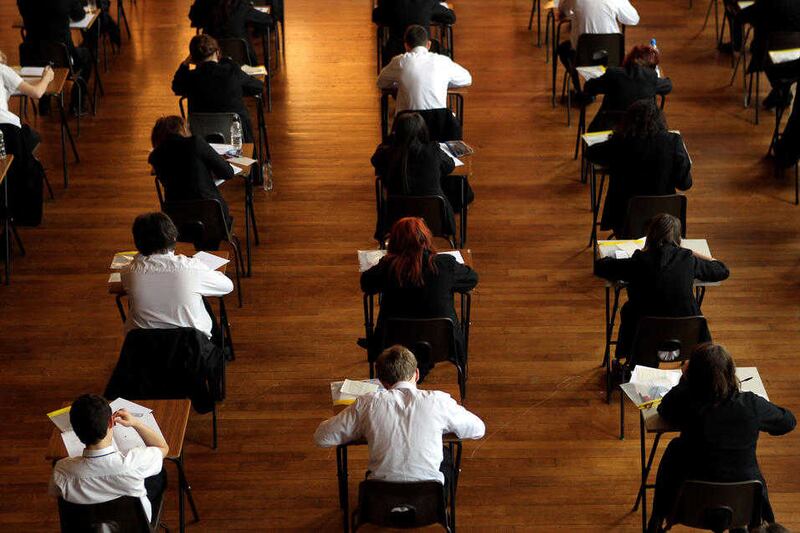A-level results are predicted to rise when they are announced this week, a foremost education expert has suggested.
And the number of boys achieving the very top grade could pull further ahead of girls due to an increase in take-up of maths - typically a high-scoring subject - according to Professor Alan Smithers, director of the Centre for Education and Employment Research at Buckingham University.
Last year, a massive increase in maths entries helped the subject become the most popular among the north's A-level pupils for the first time.
Exams chiefs were excited both by the significant rise in entries in the core subject and the strong performance of maths students - almost half received either an A* or A.
The publication of A-level results in the north showed an increase in numbers taking the exams, driven by the notable rise in maths. The subject accounted for one in 10 of all Northern Ireland A-level entries.
Overall, entries rose 2.5 per cent from 31,600 in 2014 to 32,390 in 2015 while results remained relatively stable compared to previous years.
The percentage achieving the top A* grade increased slightly while there was a small decline in the proportion achieving A*-A and A*-C. The proportion of A*-E grades was almost identical.
Across all UK regions, boys held a 0.9 per cent lead over girls at A* grade, although girls had a 0.4 per cent lead at A and A* grade combined - having outperformed boys every year since the millennium.
Entries to maths and further maths are up again in the UK, the former now replacing English as the subject with the highest intake - 85,980 entries compared with 78,800.
Since they award by far the most A* grades, this could lead to an increase in A* grades overall.
Prof Smithers said: "The grades have been narrowing since 2006. Boys tend to cluster in the subjects that give out a lot of the top grades, such as maths, Greek and Latin. Girls cluster in subjects like English that offer relatively few of the top grades, like English and psychology.
"It could be that boys go further ahead this year due to the increase in people taking maths and further maths."
His comments came just days before thousands of students across England, Wales and Northern Ireland learn their A-level results.
Prof Smithers said it was difficult to say what the pass rates would be this year, but that it was possible that the percentage of students getting the top grade could increase by one 10th of a per cent.
"It's quite tricky to predict, of course, because the regulator Ofqual tries to keep the percentage of the grades awarded the same for year on year, bearing in mind the prior attainment (GCSE results) of the cohort," he added.
"In 2015, interest in computing, RE, economics have gone up. The most A* and As go on further maths and maths. In English there are relatively few top grades and there entries have fallen by about 6 per cent.
"These changes in entries could be overwritten by the other factors. The A* and A grades could go up just a bit, by a tenth of a percent or so."



